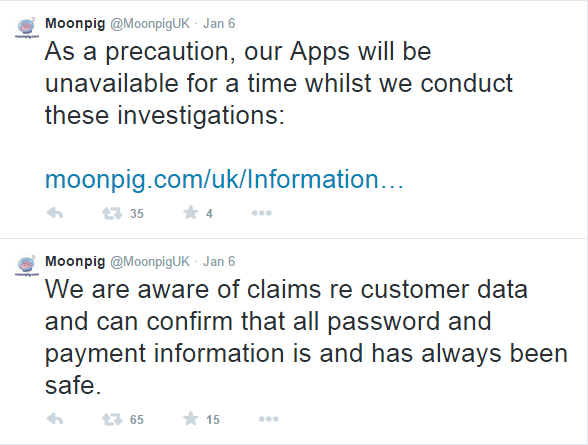Moonpig is a well-known greeting card company in the UK. You can use their services to send personalized greeting cards to your friends and family. [Paul] decided to do some digging around and discovered a few security vulnerabilities between the Moonpig Android app and their API.
First of all, [Paul] noticed that the system was using basic authentication. This is not ideal, but the company was at least using SSL encryption to protect the customer credentials. After decoding the authentication header, [Paul] noticed something strange. The username and password being sent with each request were not his own credentials. His customer ID was there, but the actual credentials were wrong.
[Paul] created a new account and found that the credentials were the same. By modifying the customer ID in the HTTP request of his second account, he was able to trick the website into spitting out all of the saved address information of his first account. This meant that there was essentially no authentication at all. Any user could impersonate another user. Pulling address information may not sound like a big deal, but [Paul] claims that every API request was like this. This meant that you could go as far as placing orders under other customer accounts without their consent.
[Paul] used Moonpig’s API help files to locate more interesting methods. One that stood out to him was the GetCreditCardDetails method. [Paul] gave it a shot, and sure enough the system dumped out credit card details including the last four digits of the card, expiration date, and the name associated with the card. It may not be full card numbers but this is still obviously a pretty big problem that would be fixed immediately… right?
[Paul] disclosed the vulnerability responsibly to Moonpig in August 2013. Moonpig responded by saying the problem was due to legacy code and it would be fixed promptly. A year later, [Paul] followed up with Moonpig. He was told it should be resolved before Christmas. On January 5, 2015, the vulnerability was still not resolved. [Paul] decided that enough was enough, and he might as well just publish his findings online to help press the issue. It seems to have worked. Moonpig has since disabled its API and released a statement via Twitter claiming that, “all password and payment information is and has always been safe”. That’s great and all, but it would mean a bit more if the passwords actually mattered.











